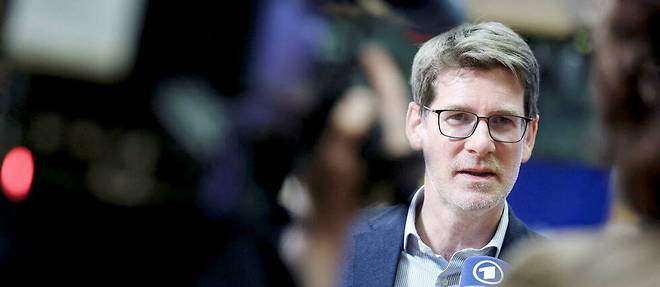The German reversal poses an insoluble problem for the European Union. At the origin of the blockage: Christian Lindner, the preventer from legislating in circles…
By Emmanuel Berretta

© Kenzo tribouillard/AFP
Published on
Subscriber-only audio playback
IPresident von der Leyen was unable, over the weekend, to unblock the situation within the German government: Christian Lindner, boss of the Liberal Democratic Party (FDP), remains inflexible to this day. He refuses to endorse the directive on the end of heat engines while all political deliberations are closed. But this last-minute opposition seems rather guided by domestic political considerations. The FDP takes very badly this cohabitation with the left and the ecologists. Its voters are turning away from it, as the regional elections have shown. Christian Lindner needs to be heard.
In the meantime, he is upsetting the organization of the European Union and threatening one of its pillars: Germany’s signature on the Council. “Germany voted ‘yes’ in the Council. It cannot go back at the risk of undermining the whole of European construction,” warns Pascal Canfin, chairman of the European Parliament’s Environment Committee. “If all countries behave like Germany, there will never be a European agreement again. It’s the same government, the same coalition that said ‘yes’ after our negotiations,” adds Renew Europe MEP. In addition, the European text provides for a review clause in 2026 for rechargeable hybrid vehicles. In other words, the mass of the combustion engine is not quite said…
The broken down German coalition
When the European Parliament and the Council reach an agreement during trialogues in October 2022, the rest is just a formality. Parliament ratified this agreement on 14 February. The Council should have done the same. It was without counting with Christian Lindner, fighter of the 25e hour… Olaf Scholz, the Chancellor, finds himself stuck in the meanders of a coalition which, behind the scenes, is hooting at almost every subject.
The internal German crisis is serious. Because that’s what it’s all about. Christian Lindner calls into question not only a formal European compromise but whose terms are completely modeled on the contract of the German coalition. As Pascal Canfin points out, the three parties of the German coalition had agreed on an end to the heat engine by 2035. The FDP obtained that the coalition contract mention that, from 2035, “ only vehicles that can demonstrably be supplied with e-fuels can be so”.
READ ALSOEuropean Union: the Commission wants to relaunch the hunt for speedersThe European Commission has planned to make a proposal on e-fuels. “It is part of the European compromise. Perhaps Frans Timmermans will agree to give a date to formulate this proposal. But it is the Commission that controls this proposal”, adds Pascal Canfin.
We are mistaken if we think that Lindner is interested in the merits of the case. Its purpose is quite different. And it is very possible that it opens a second front within the German government: the maintenance of nuclear power against and against the SPD and the Greens. In Paris, Berlin political life is observed with interest. Especially if it is to praise the merits of nuclear…
